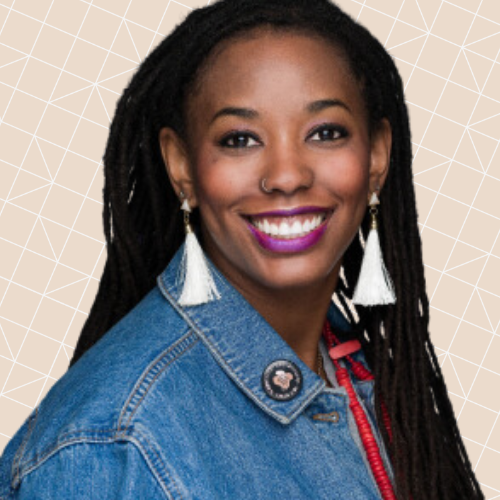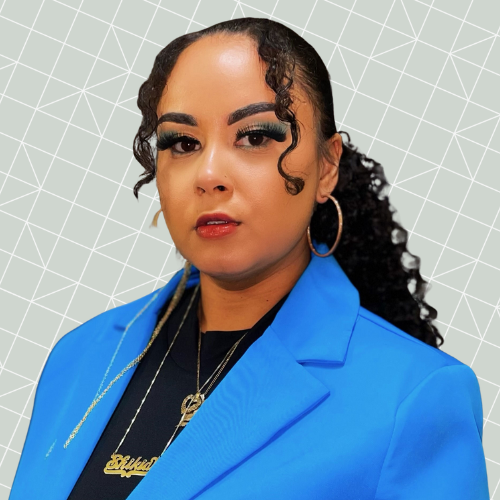Anti-Racism & Indigenous Cultural Competency
Building Foundational Knowledge for Transformative Change
Four-Part Learning Journey | June – July 2025
Changemakers
Virtual Connection and Workshop Sessions
Coaching and Peer-Learning Calls
Dreaming of an Anti-Racist Future?
Grounded in anti-racist, decolonial, and distinctions-based frameworks, the cohort will unpack both personal and organizational responsibilities in reconciliation and racial justice. Participants will explore how to apply the Truth and Reconciliation Commission’s Calls to Action, the United Nations Declaration on the Rights of Indigenous Peoples (UNDRIP), and anti-racism principles in ways that are accountable, relational, and community-driven.
This four-part learning series helps participants build a strong foundation in anti-racism and Indigenous cultural competency. It is designed for people and organizations working in communities, whether through nonprofits, government, education, or other sectors.
Together, we’ll learn about the historic and ongoing impacts of colonialism and systemic racism, and explore how to build relationships that honour Indigenous sovereignty and advance equity for Black, Indigenous and racialized communities. The learning is grounded in distinction-based approaches, reconciliation, and anti-racist practice, focusing on how we work, make decisions, and build trust.
This cohort is designed for people who are early in their learning about anti-racism and reconciliation. It centres Black, Indigenous and racialized communities and creates space for thoughtful conversation, reflection, and practice. Each session will include interactive learning, group dialogue, and practical tools to support action. Participants will have access to session recordings, curated resources, coaching and peer discussions and a certificate of participation at the end of the series.
what's included?
-
A virtual workshop series and two coaching sessions exploring the key elements of anti-racist and reconciliation principles and how to apply frameworks in community change efforts.
-
Content Specialist and peer coaching sessions designed to support your changemaking experience
-
A focus on applying theory to advance change in your collaborative or community
-
Access to Tamarack's publications, research, and guides for communities and local leaders
-
An opportunity to ask questions that support your learning journey in a group of changemakers curious to learn more about the application of decolonial, anti-racist and reconciliation-based approaches
key agenda items
-
Relationship-building strategies grounded in cultural safety, reciprocity, and accountability.
-
Learn shared language and key concepts like systemic racism, white supremacy, and privilege.
-
Introduction to anti-racism principles, including systemic racism, white supremacy and institutional power.
-
Overview of a distinctions-based approach to First Nations, Métis, and Inuit communities and histories and governance.
-
Foundations of historical and modern-day colonization, including treaties, the Indian Act and the Residential School System as mechanisms of cultural genocide and systemic harm.
-
Indigenous cultural competency frameworks are rooted in community knowledge, kinship, and collective care.
-
Tools, frameworks and interactive activities for embedding anti-racism and Indigenous cultural competency into programs, policies, and daily practices including the application of Truth and Reconciliation Commission’s Calls to Action and the United Nations Declaration on the Rights of Indigenous Peoples (UNDRIP) and the United Nations Declaration on the Rights of People of African Descent Principles.
Who should apply?
This learning cohort is open to anyone interested in strengthening their anti-racism and Indigenous cultural competency knowledge. It is particularly suited for:
-
Community practitioners and organizers
-
Nonprofit and philanthropic staff
-
Public servants
-
Educators and researchers
-
Frontline service providers
-
Individuals new to equity, justice, or inclusion roles, or seeking a refresher.
Participants must demonstrate a commitment to:
- Ongoing learning and reflection.
- Applying learnings to community change efforts.
- Share perspectives, learnings and insights with the learning cohort.
- An excitement to build an anti-racist future in the face of shifting societal expectations.
- Engage in anti-racist and reconciliation processes that support just futures for Black, Indigenous and Racialized communities.
-
To fully engage in the four-part virtual workshop series and peer coaching and discussion calls throughout the 2-month learning journey.
session breakdown
Sessions will take place from 12:30 PM ET – 2:30 PM ET on the following days:
- June 12, 2025
- June 26, 2025
- July 10, 2025
- July 24, 2025
Session 1: Grounding in Community, Language, Relationships and Anti-Racism Principles
This 2-hour session will focus on setting the tone for our learning journey together. We will begin with a community acknowledgements and invite participants to introduce themselves in relation to the land they are on, their communities, and the values they bring into this space. We will co-create shared agreements and build a foundation for relationship-based learning rooted in psychological safety, reciprocity, and care. Participants will engage in discussions on community, identity, and power, and explore foundational concepts of anti-racism, including bias, privilege, marginalization, and systemic oppression. Through interactive activities like the “Circle of Trust” and social location mapping, we will reflect on our positions in systems of power and begin to develop a shared language to engage in equity and justice work.
Session 2: Historical Context – Colonialism, Treaties, and Ongoing Systems
This 2-hour session will offer a historical overview of colonization in Canada and how its legacy continues to shape systemic inequities today. We will explore distinctions between First Nations, Métis, and Inuit Peoples, their governance systems, and land relationships. We will also explore key topics including the colonial policies placed on Indigenous peoples such as Treaties and the Residential School System. Together, we’ll examine how these systems continue to impact Indigenous communities through systems related to health, justice and fundamental huma rights. We will use creative practice as a critical reflection tool to guide participants to connect these histories to their own roles in reconciliation and justice.
Session 3: Indigenous Cultural Competency – TRC Frameworks and Foundations
This 2-hour session will support participants in deepening their understanding of Indigenous cultural competency and community engagement. Participants will reflect on the importance of Indigenous knowledge systems, cultural safety, and decolonial approaches to service design and leadership. Using the Truth and Reconciliation Commission’s Calls to Action, participants will begin to build their own personal or organizational “ReconciliACTION Plans” for moving from awareness to accountability.
Session 4: Rights and Responsibilities – UNDPAD, UNDRIP, TRC, and Action Planning
This 2-hour session will focus on putting learning into action by exploring how the Truth and Reconciliation Commission’s Calls to Action and the United Nations Declaration on the Rights of Indigenous Peoples (UNDRIP) can guide meaningful change. Participants will engage in interactive activities that support personal and organizational action planning and reflect on how these frameworks can be applied within their work. The session will also include time to revisit key learnings from across the cohort, share individual commitments, and hold space for collective reflection. Together, we will close our learning journey by naming our responsibilities and imagining new possibilities for equity and reconciliation in practice.
meet the facilitators

Rochelle Ignacio (she/her)
Rochelle is an equity strategist, facilitator, public speaker and community builder who guides organizations and individuals through meaningful equity and anti-racism journeys. Grounded in an intentional, relational, and care-based framework, she fosters environments where belonging, reconciliation, and transformative change can take root.
Since 2021, she has led Tamarack Institute’s inaugural Equity & Indigenization team, spearheading the Seeds of Transformation, a loving framework for equity, belonging and reconciliation. Rochelle embeds equity into organizational culture by shaping policies, leading training programs, and coaching teams. Rochelle is experienced in developing equity strategies and coaching teams on developing disaggregated employee engagement dashboards.

Shanese Green (nee Steele) (she/they)
Shanese is a bridge-builder, advocate, and equity-driven community animator dedicated to fostering spaces of belonging and transformation. As Senior Community Animator, Equity and Reconciliation at Tamarack Institute for Community Engagement, she brings 14 years of experience in collaborative community development, collective capacity building, and place-based learning.
Shanese’s work is deeply rooted in relational strategies for conflict navigation, 2SLGBTQIA+ inclusion, reconciliation, and decolonial practice. She is passionate about equitable policy development, transformative curriculum design, anti-racism, and systemic equity, particularly in the context of youth leadership, community engagement, and gender-based violence prevention.
logistics & pricing:
Registration will be limited to a maximum of 60 learners to ensure a dynamic learning experience. Participants will be sent access to all cohort materials and Zoom meeting details in advance. The fee is inclusive of the 4-session series and coaching calls.
register now
Scholarship Opportunities
We want everyone to learn how to improve their community! To ensure this, Tamarack supports folks experiencing systemic barriers such as lived/living experiences of oppression including racial discrimination and financial poverty, and emerging changemakers who do not have access to professional development budgets through our Be a Light Fund.
Reach out to Stephanie if you have any questions or concerns.